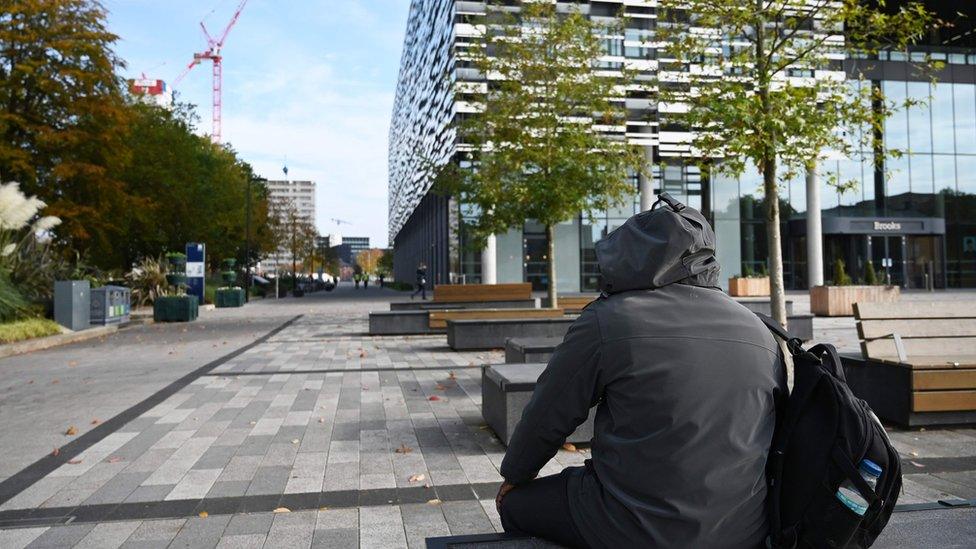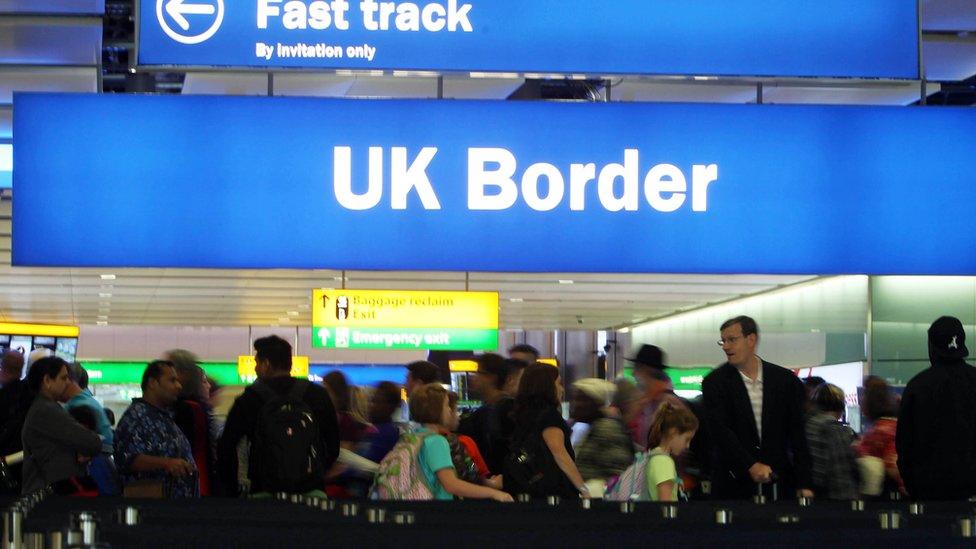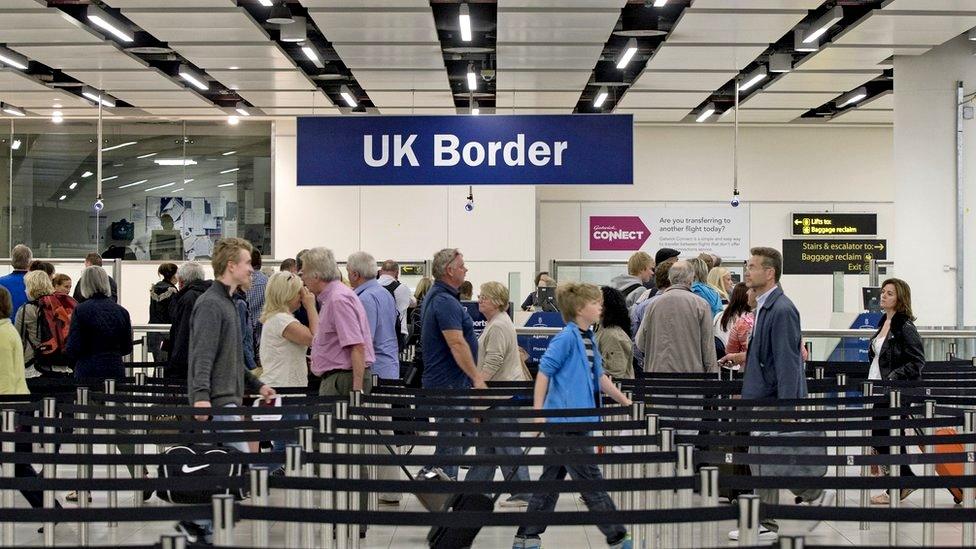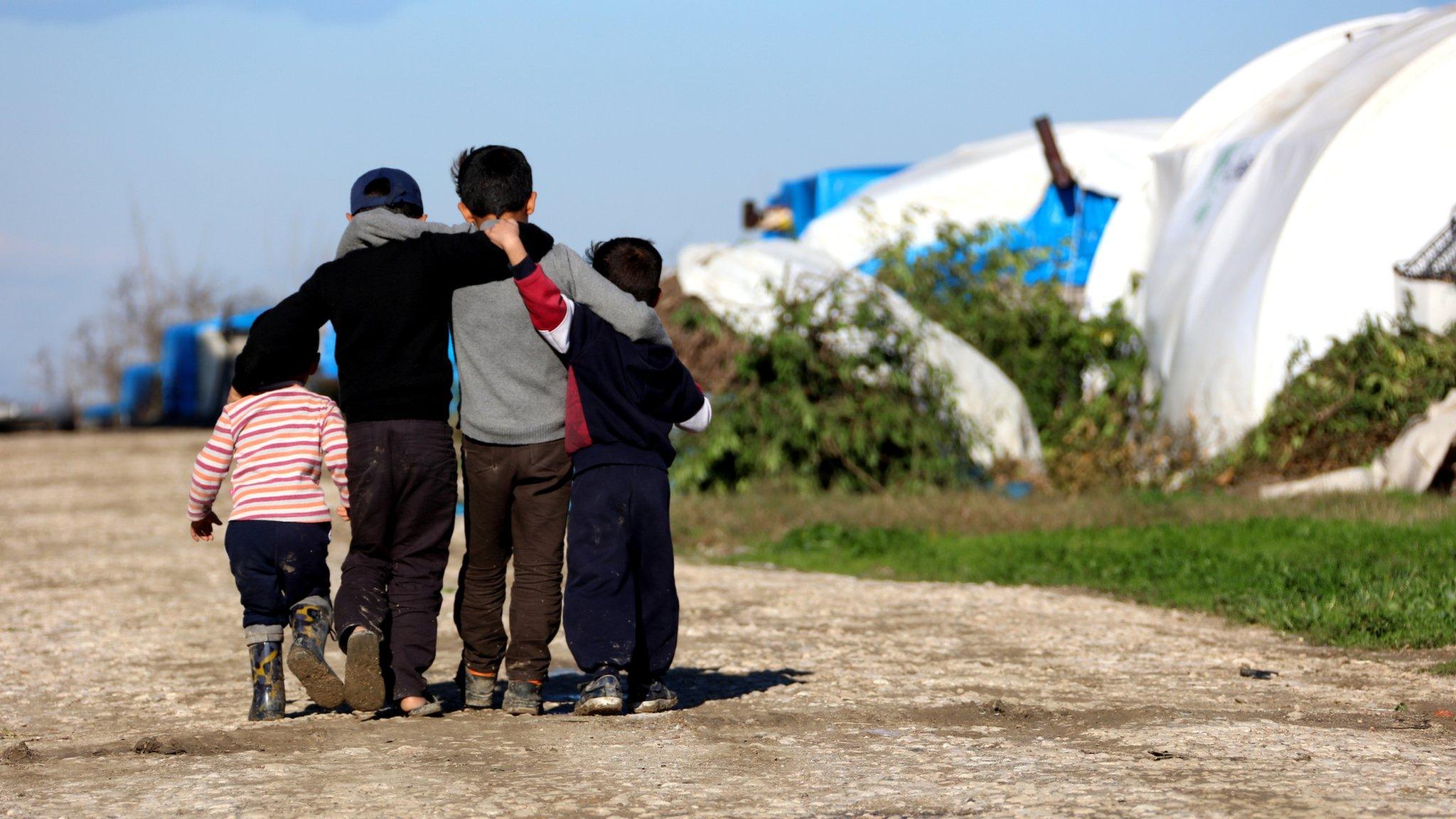Asylum seekers: Delays in processing applications rise
- Published

Delays in processing UK asylum applications increased significantly last year, official figures suggest.
Four out of five applicants in the last three months of 2019 waited six months or more for their cases to be processed, compared with three in four during the same period in 2018.
In 2014, only one in five asylum applicants was waiting that long.
The Home Office said it dealt with "a high number of complex cases" and wanted to end "unnecessary delay".
Asylum seekers cannot work while their claims are being processed, so the government offers them a daily allowance of just over £5 and accommodation, often in hostels or shared flats.
Once an applicant has waited for a year they can apply for the right to work, but the jobs they can apply for are restricted to those on the government's occupation shortage list.
The Home Office website says straightforward decisions are usually made within six months. But this standard was dropped as a target last year amid the growing backlog of complex cases.

'We don't know the end of it'
Farzin (not his real name) has been waiting for a decision since December, having come from Iran to the UK to avoid religious persecution.
The former importer/exporter says he is yet to be interviewed by officials.
"We don't know when it's going to be finished," he says. "We don't know the end of it. It adds to a sense of despair and frustration."
When he arrived in Yorkshire, Farzin thought he might use his business experience and skills to get a job but while he waits he is unable to work.
He says the £5 allowance covers food but not much else. "You don't have social activities. The only thing you can do is walk around and do some food shopping."
Lockdown has made life harder. "You are asking someone to stay in a room with £5 a day and with no chance of travelling or doing anything or buying stuff or having the internet or topping up your phone," says Farzin. "This is a recipe for producing mentally ill people."

Asylum applications made between March and December 2014 - the earliest information available - had a more than 80% chance of being decided within six months. By the end of 2019, this had dropped to 20%.
By the end of June this year, out of the almost 43,000 applicants awaiting decisions, almost 17,000 had been waiting for at least a year.
Peter Walsh of the Migration Observatory at Oxford University said 2019 had been a "bumper year for asylum applications" with 45,000 submitted - more than in any year since 2003.
This was "one likely cause" of the increased backlog, he added.
People applying through the main asylum process are most likely to come from Iran, Iraq or Albania.
Paul Hook, director of campaign group Asylum Matters, said: "With ever more people forced to wait longer than six months for a decision on their asylum claim, it makes no sense for the government to deny the right to work to skilled, talented people who could contribute to the Covid-19 response and the wider economic recovery."
A Home Office spokesperson said the government was developing a new "service standard".
"The Home Office deals with a high number of complex cases and is committed to ensuring asylum claims are considered without unnecessary delay," they added, "and that those who need protection are granted it as soon as possible so they can start to integrate and rebuild their lives."
- Published21 August 2019

- Published22 August 2019

- Published25 January 2019

- Published20 May 2019

